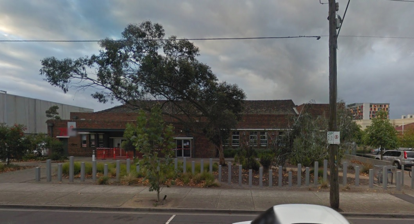|
SARAH GOEGAN Volume 8, Issue 3 With clerkship season underway, and amidst the onslaught of endless information sessions and promotional material, the prospect of selecting a career path can be daunting. I sat down with Juliet Akello, a County Court associate (having previously worked at the Werribee and Footscray branches of Western Community Legal Centre (WCLC)), to talk community law, navigating the careers jungle, and the opportunities available to young lawyers. Where did you study law?
I studied a JD at the University of NSW. How did you get into community law? I did a 3 month internship at a CLC that had an affiliation with my university. After having worked there, I absolutely fell in love with the community sector. So I had an idea that that’s where I wanted to start. I never wanted to go down the ‘normal’ way of applying for clerkships or going into a corporate firm. Instead of stressing myself out and putting in applications for clerkships, I booked a holiday and went overseas, and had the time of my life. What was your first post-uni position? When I finished my degree, I decided to do College of Law, and while doing that I put an application to volunteer at WCLC. I did my practical legal training there, loved it, and I was lucky enough that an opportunity came up for a position once I completed my practical legal training. What got you involved in the taxi drivers’ legal service run at WCLC’s Footscray branch? I had been an employed lawyer at WCLC, and I worked on a taxi client file. Whilst looking through the file, I spoke to the manager saying that I couldn’t believe the crazy things happening within the industry. He then approached me about working on secondment at Footscray for 2 days a week. What is the benefit of CLC work and volunteering? It’s an amazing experience because you get to do a lot of things you might not otherwise do in other sectors. When I first started I was handed a file within my first couple of weeks and told to go appear for a client at the Family Court for a divorce application. About three months after I was asked to do duty lawyer work at the Werribee Magistrates’ Court. I was talking to a friend of mine who started off at a commercial firm, and three years later she told me that one of the partners made her contact a barrister to talk about a matter they were working on, and she was so excited that she was given that opportunity. I was quite shocked because I spoke to a barrister about 3 weeks after I started working, and I had briefed a barrister within 3 months of having started out as a lawyer. So you really hit the ground running. Describe your new job? I’m going to be working as a judge’s associate. I’m an unreserved associate, so I don’t have an allocated judge as such, which I think is an amazing opportunity for me, because I want to join the Bar, and that’s a good way to go about it, because you get to learn about advocacy skills from both barristers and judges. Ah, so you’d like to be a Barrister. Which area of law would you like to practice in? I have an idea, but I’m not 100% sure of what law I want to practice as a barrister, which is why the reserve associate position is so appealing for me, because you get to work with different judges in different areas of law, and that kind of exposure might ‘pin me down’ to one area of law. That’s comforting, particularly for students like myself, who aren’t sure of which area they’d like to practice in. What advice can you give people in this position? I don’t think there’s anything wrong with being uncertain. I had no idea where I wanted to go when I finished uni. Just get as much experience as you can. Try apply for a local CLC, do some volunteer work, perhaps apply for paralegal positions if there are corporate firms offering them. Don’t be afraid to pick up the phone and contact an organization you want to work with. Look at some of the more ‘novel’ ways to try and find a job, because the job market, as it currently is, that’s probably how you would have to go about it. So, make yourself known. What advice do you have for the clerkship/traineeship process? When writing applications, don’t make silly mistakes, make sure you know the organization you’re applying for. Don’t send an essay in your cover letter – be concise, look at what is being advertised, and incorporate that in your application. Finally, what helped you survive law school? Any top study tips? Beethoven. During exam time, I just put some Beethoven on, put my head down and studied. Get a study group together, and DO PAST EXAM PAPERS. Do not walk into an exam without having looked at past exam papers. Sarah Goegan is a second year JD Student Comments are closed.
|
Archives
October 2022
|



